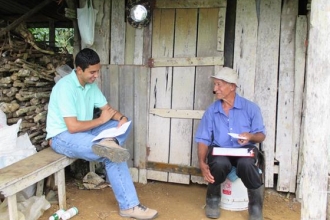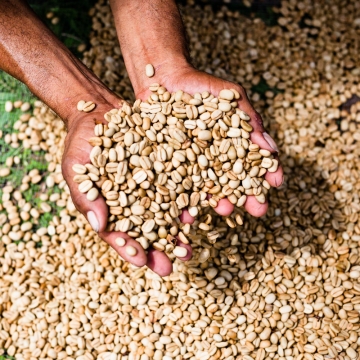
CASCADA Project ends successfully after six years contributing to the development of Central America
High-level research, strengthening of technical capacities and participatory studies allow to understand and disseminate strategies of ecosystem-based adaptation in agricultural systems. August, 2018…
Climate change impacts and adaptation among smallholder farmers in Central America
Smallholder farmers are one of the most vulnerable groups to climate change, yet efforts to support farmer adaptation are hindered by the lack of information on how they are experiencing and responding to climate change. More information is needed on how different types of smallholder farmers vary in their perceptions and responses to climate change, and how to tailor adaptation programs to different smallholder farmer contexts.
Do Safety Net Transfers Improve Diets and Reduce Undernutrition? Evidence from Rural Ethiopia
This paper we examine the impact of the Ethiopia’s Productive Safety Net Program (PSNP) on
household dietary diversity and child nutrition using both waves of the Ethiopian Socioeconomic Survey. It uses various methodologies. Results indicate consistently that PSNP has not had the desired effect on household dietary diversity or child nutrition regardless of model specification or methodology, suggesting that
perhaps the transfers need to be paired with additional interventions such as information about nutrition.
The impact of infrastructure shocks on agricultural markets. Evidence from the Zambezi river in Mozambique
Prior to 2009, there was no direct road connection between the southern regions of Mozambique—where the capital city is located—and the more agriculturally-productive central and northern regions. In this paper, we leverage the opening of a major road bridge to identify the impact of enhanced domestic transport infrastructure on agricultural market performance. We apply a generalized difference-in-difference estimator within a dyadic regression context.
Participation in Organizations, Technical Efficiency and Territorial Differences: A Study of Small Wheat Farmers in Chile
The lack of efficient individual solutions for small farmers either in the market or through the State has resulted in a search for collective spaces to strengthen their productive capacities, where participation in organizations emerges as a relevant factor to obtain higher efficiency levels.
Production risk and adoption of irrigation technology: evidence from small-scale farmers in Chile
Weather shocks and cropland decisions in rural Mozambique
Economic development in low income settings is often associated with an expansion of higher-value agricultural activities. Since these activities often bring new risks, an understanding of cropland decisions and how these interact with shocks is valuable. This paper uses data from Mozambique to examine the effect of weather shocks on cropland decisions. We account for the bounded nature of land shares and estimate a Pooled Fractional Probit model for panel data. Our results show that crop choice is sensitive to past weather shocks.
Corporate investments in supply chain sustainability: Selecting instruments in the agri-food industry
Private investments to address environmental issues are perceived as a powerful engine of sustainability. For the agri-food sector, multiple instruments have been developed to green supply chains. Yet little is known about the underlying process and conditions under which green sourcing concerns lead to the adoption of specific sustainability instruments among agri-food companies.
Transforming governance in telecoupled food systems
In this paper we analyze how new actors, interests, and resources become salient to food system governance and how the domain of food system governance transforms as a result. Specifically, we focus on how the boundaries of food systems are redefined and new institutions are developed through the explicit recognition of distal interactions and feedbacks—telecoupling—operating in the food system space.
Pagination
- Previous page
- Page 61
- Next page

